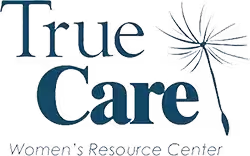Forced, or coerced, abortions don’t just happen in other countries – they occur in America, too.
The definition of coercion is to pressure, compel, or dominate by force (physical or emotional), and that’s what happens to many women who abort their pregnancies. For example, a few years ago, a woman in Colorado went to an abortion clinic because her then-boyfriend pressured her to do so; however, she regretted taking the abortion pill immediately, and found out about abortion pill reversal; seven months later, she gave birth to a healthy baby boy.
The Pressure to Abort
Abortion coercion comes from various sources: parents telling their daughter she’ll be kicked out of the house if she doesn’t have an abortion; a boyfriend or husband threatening to end the relationship; a college that says a student will lose her scholarship; a place of employment that threatens job loss. Abortionists also have been known to continue an abortion when a woman has revoked her permission.
In an article published in the National Review, writer Colin LeCroy asserts, “The use of force and domestic violence to compel abortion is a widespread problem, especially in the domestic sex-trafficking industry and sometimes within families. But control can — and is — exerted without the use of violence in a multitude of ways. We use ‘coercion’ to denote the process by which partners, family members, or others in a woman’s community selfishly pressure her to undergo an abortion she does not want.”
A woman called the True Care Scheduling Line a few years ago and told our Scheduler that her husband, upon learning she might be pregnant, wanted her to abort. She, however, didn’t want to have an abortion. Our staff member scheduled her for an appointment to confirm her pregnancy, review her options, and provide her with community resources. The next day, the woman called again and cancelled her appointment, saying her husband found out about it, was angry, and was taking her to Colorado for an abortion. She was someone who was pressured to have an abortion she did not want to have.
That scenario is not uncommon. According to a study published in the Journal of American Physicians and Surgeons, more than 70 percent of the 987 women who participated in an after-abortion survey admitted that they experienced “at least subtle forms of pressure to terminate their pregnancies.” Two other findings are significant: (1) almost 60 percent of the women indicated that they decided to abort “in order to make others happy” and (2) nearly 30% of those surveyed admitted that they were “afraid that they would lose their partner” if they didn’t abort their pregnancies.
If having an abortion is not your choice and someone tells you that you MUST have an abortion, that is coercion and it’s illegal. You as the pregnant woman have the right to choose; no one can – or should – make the choice for you.
Help for Such Situations
The Justice Foundation’s Center Against Forced Abortions can help you if you’re experiencing people in your life trying to force an abortion decision upon you. Whether you are over 18 or not, this organization can help you. Contact them at 210-614-7157 or by email at info@txjf.org.
Additionally, we at True Care are here to help. Our Resource Coordinator and Program Director work in conjunction with our Nurses and Advocates to provide guidance on community resources and various in-house programs that can assist women facing an unplanned pregnancy. Those resources include housing, employment, education, physicians, and parenting classes.
We are here for you! Schedule your free pregnancy test by calling or texting 307-215-9684. True Care maintains your confidentiality.
